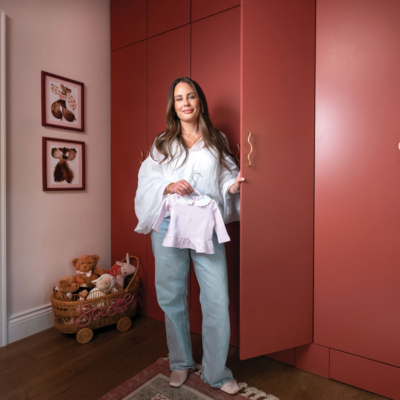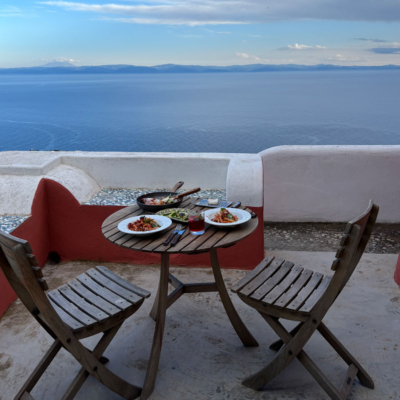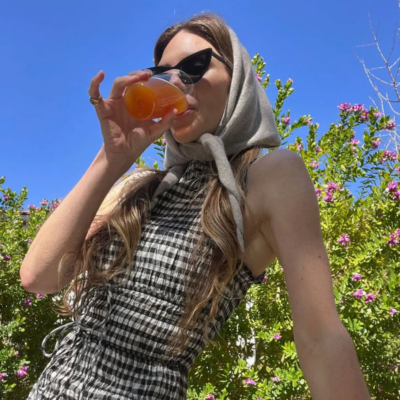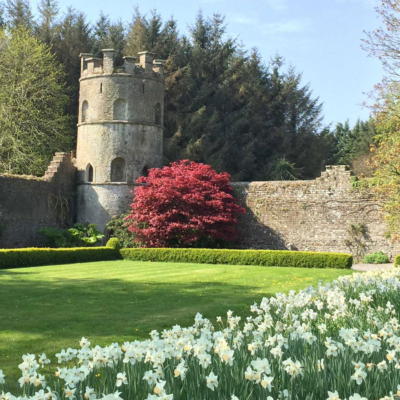Retired obstetrician Dr Máire Casement explains how her skills are helping women in Liberia deliver
In 2016, Máire Casement, a senior obstetrician from Belfast, climbed Kilimanjaro, skied, started rehearsals in the chorus of The Belfast Opera and upped her efforts with her personal trainer. All of which tells you one thing. She belongs to that new generation for whom Life begins at Retirement. The Baby Boomers. She agrees wholeheartedly. But that list is merely the periphery. A troubled spot on the Ivory Coast was her passion project: Liberia.
Logistics dictated that we find a restaurant north of the Liffey on a Monday. As I bemoaned the number of restaurants which were closed and worried about the homely fare on offer at the Harbourmaster in the IFSC, she pulled out her phone and pointed to a photo. She was sitting at table with seven other people, each holding a spoon. On the table was a washing-up-sized basin filled with food, “usually rice with chicken or fish heads. We all just dipped in. And you know what? It was surprisingly tasty.” This was lunch in Liberia.
Not surprisingly she found her smoked salmon starter and beef stew very satisfactory. Truly everything is relative.
Food was undoubtedly one of the least important relativities of her experiences in Liberia. Ever wondered what happens to a woman in obstructed labour in a war-torn country? Or what happens to foetal distress in famine? When Máire Casement retired she decided to find out. “When I was signing up for Kilimanjaro I thought I would quite like to do some work in Africa. I wanted to give something back. Trouble is, you can go out and do good work but when you leave nothing changes.”
Liberia is an African country in extremis. It recently added the insult of Ebola (184 health workers died) to the injury of years of armed conflict. “Comprehensive emergency and neonatal care is limited by the small number of doctors,” says an official WHO document in what has to be the understatement of the century. “There are three obstetricians and 117 doctors for over four million people,” says Casement. The consequences for mothers and babies can only be imagined.
Twenty years ago a paediatrician called David Southall had an idea. Like all genius ideas, it had the merit of being obvious: train health workers to manage maternal and paediatric emergencies in troubled countries. “It’s called Task Shifting,” she explains. “You pick nurses and midwives who can upskill. So that once you leave, it doesn’t all revert to as before. “The idea of teaching people how to do a caesarean section appealed to me,” says Casement. But then it always had. “When I was a senior registrar I always got the juniors to do at least one caesarean section.” Her preternatural confidence probably came from her father, also an obstetrician. It was in her blood. Which turns out to be an apposite analogy.
“When I was signing up for Kilimanjaro I thought I would quite like to do some work in Africa. I wanted to give something back.”
“The hospital in Liberia had a blood bank. It’s a government hospital and there’s a rule that for small procedures a relative must come and give a unit of their blood. A woman was bleeding very badly. They gave her one unit but her haemoglobin dropped to three. She needed four units and the relative hadn’t turned up. I gave her my blood.”
What do they know of obstetrics who only obstetrics know (to paraphrase the cricket writer CLR James)? To practise any great discipline, you have to have lived. Casement has had her share: her husband died in 2008, aged just 55, leaving her with four children coming into adulthood. That was when she took up choir singing, which led to The Belfast Opera, the epic arts project conducted by David Brophy and performed by an international cast and a chorus of citizens last month.
“On my first Sunday in Liberia I went to church. The minister announced: ‘We have a doctor here’ and told anyone with gynaecological problems to visit me. They came in droves because they all want babies – a man won’t marry them unless they have a baby.”
Her purpose had been “to teach one intern and three midwives to do caesarean sections”. Now she found herself on call. How could she not respond?
“They had no pain relief in labour, no screens, no oxygen, no privacy. There was a lot of obstructed labour. The only anaesthesia is spinal. Post caesarian section, they just have Voltarol for the pain. Nurses shout and roar at their patients. There is no tradition of the caring nurse. Midwifery skills are not great. On one emergency the anaesthetist went off to church. I said: ‘You’re talking to God, but the patient could die.’”
She has that uniquely Belfast characteristic – a lack of sentimentality. So acclimatising to the blood and the sweat (“you always have to wear the Ebola gear”) in Liberia might be expected. But tears? Infant mortality clearly upset her. “Why can you not monitor a baby continuously?” she found herself demanding. “Is a Third World baby of less value?” It was a cri de coeur.
The great medical writer Theodore Dalrymple wrote that compared with western civilisation Africans lead intolerable lives, but that does not mean Africans do not experience daily happiness. Just because maternal and infant mortality rates are intolerable does not mean that Africans are stoic about it. And Máire Casement will never be indifferent to it.
At the time of doing lunch, she is nervous about The Belfast Opera: “David Brophy is a perfectionist.” She won’t be doing Kilimanjaro again. “In a few months I will go back to Africa. Even though I was lonely and lost a stone. You need to be fit.” Clearly there is no mountain as high as obstetrics in Liberia.
A dozen countries now benefit from MCAI, the charity founded by Professor David Southall. www.mcai.org
Illustration by Lauren O’Neill
LOVETHEGLOSS.IE?
Sign up to our MAILING LIST now for a roundup of the latest fashion, beauty, interiors and entertaining news from THE GLOSS MAGAZINE’s daily dispatches.










